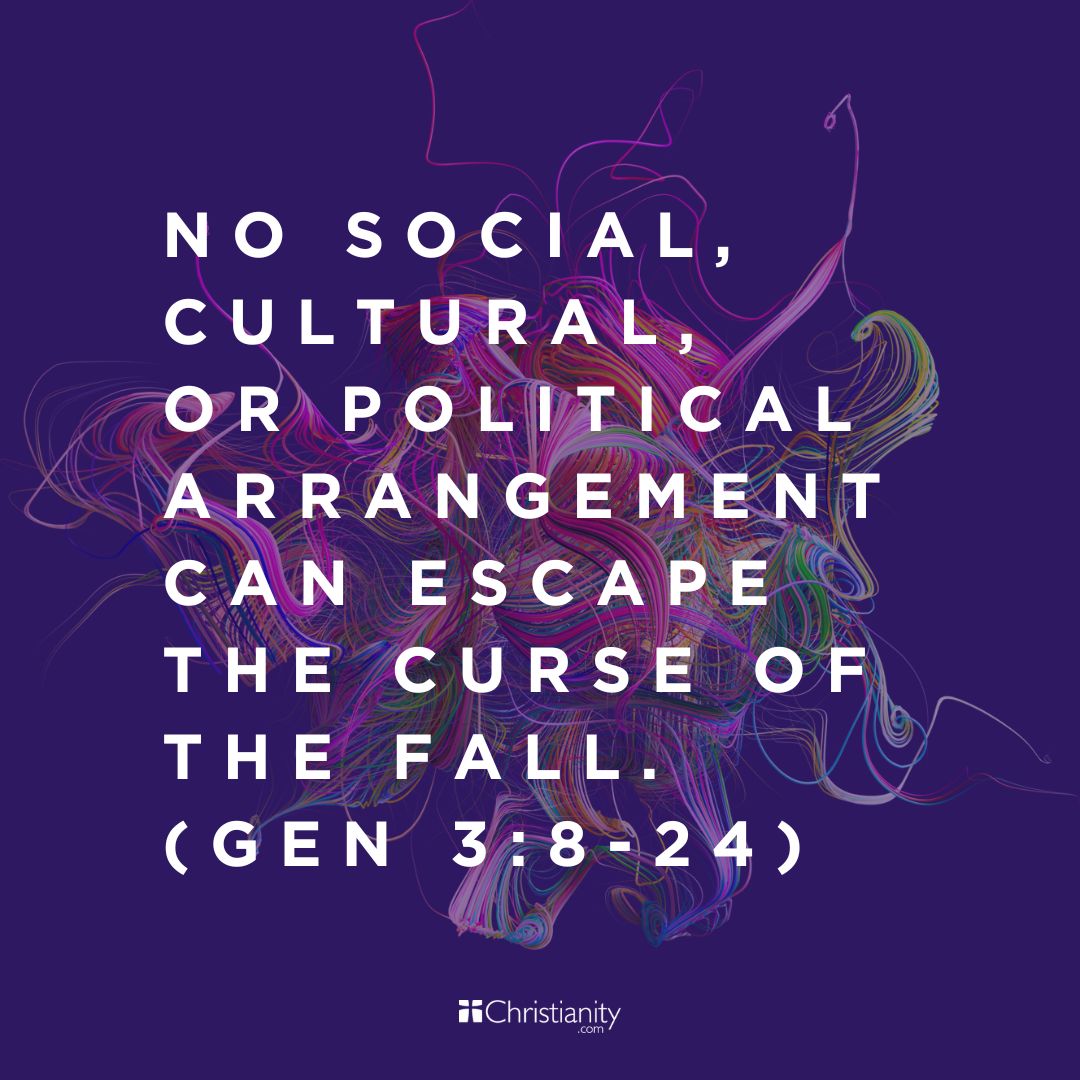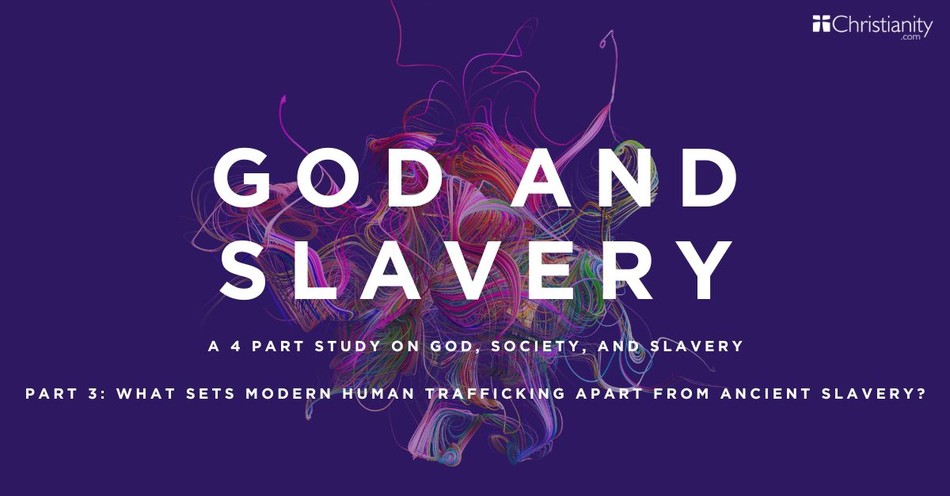Based on our history of slavery in the United States, we are right to think of slavery involving the control, if not ownership, of a person or people by another so that the owner/controller benefits from the body (e.g., labor, sexual availability, economic outputs) of the one who is owned and/or controlled. It seems important to add the notion of “control” to the definition of slavery, given the sorts of human labor and sex trafficking that are becoming more prevalent today. While those being trafficked are exploited, they are not always owned in a legal sense.
Some claim that the Bible, particularly the Old Testament, endorses slavery. Embedded in this claim is the assumption that the relationships in the ancient Near East may be classified as slavery and equated, in various ways, with slavery in early American history or human trafficking. This characterization, however, is problematic because it does not account for the meaning of the Hebrew terminology underlying translations of “slavery” and the nature of dependent relationships in the ancient world.
Is Our Modern Definition of Biblical Slavery Getting Lost in Translation?
Words are symbols that gesture toward concepts. As philosopher Niklas Forsberg, writes, “Words are worn and torn, and so turned (differently). At times, they are torn and worn out. But since words are turned—changed but not necessarily exchanged since words may look the same while their concepts change—it is oftentimes hard to come to see that one may fail to be in command of one’s own language.” The point is that we attach concepts to the words we use. To the extent that the concepts we attach to words change over time, we don’t generally lose the word…we lose the concept.
This happens with various terms in the Old and New Testaments. In Serpents and Doves, for instance, I suggest that the concepts attached to certain uses of “Christian” differ from and do not align with the concepts attached to the biblical use of Christian. I also suggest that the shift in concepts is problematic. Arguably, we have a similar challenge when it comes to the translation of the Hebrew ‘ebed as “slave” in the Old Testament because “slave” comes with certain modern-day concepts attached.
While there are other terms rendered “slave” in English translations of the Old Testament, “slave” is most frequently found when translating the nominal and verbal forms of ‘ebed and associated cognates. There is, however, inconsistency within certain translations. Exodus 9:20-21 is a helpful example. Within these two verses ‘ebed occurs three times. However, certain English translations render ‘ebed with two different English words. For instance, the NIV reads as follow: “Those officials (‘ebed) of Pharaoh who feared the word of the Lord hurried to bring their slaves (‘ebed) and their livestock inside. But those who ignored the word of the Lord left their slaves (‘ebed) and livestock in the field.” It seems that the NIV is seeking to clarify some sense of hierarchy amongst the servants in the passage with the “officials” having charge over the “slaves.” In doing so, however, the translation masks the underlying Hebrew and suggests a conceptual arrangement that leans more toward a modern understanding of masters and slaves.

The difficulty with the translation concerns the relative flexibility of ‘ebed and its seemingly positive uses in various contexts. Being an ‘ebed wasn’t necessarily a position someone would have sought to escape. John Goldingay notes, “There is nothing inherently lowly or undignified about being an ‘ebed; being the ‘ebed of someone important carries dignity with it. It is an honorable term.” Biblically, such a description is reinforced through various narratives.
For instance, in Genesis 14:15, the plural of ‘ebed is translated “servants.” In this context, the servants are accompanying Abram to rescue Lot, who has been taken captive. While positioned under Abram’s authority, the servants do not seem to have been held captive by force, nor does there appear to be any particular desire to overpower Abram. Were that the case, it would seem unwise to have armed them.
Similarly, we see a positive portrayal of servanthood in Genesis 24. After deciding to find a wife for Isaac, Abraham delegates the task “to his servant, the oldest of his household, who had charge of all that he had” (Gen 24:2). The interaction between Abraham and the servant reflects a certain “give and take” so that the servant does not blindly follow Abraham’s commands (24:5-9). The servant is trusted to go out on his own to accomplish a task his master requires.
‘Ebed denotes a dependent relationship in which a servant relates to a lord or master with a degree of loyalty, fulfilling the duties commensurate with their position. While brutality and subjugation could enter into such a relationship (as it did with Israel under the Pharaoh, who knew not Joseph and is reflected in various laws in the Hebrew Bible), the relationship between servants and masters required some degree of mutual respect. Servants were committed to serving their master, but they were not (or were not supposed to be) “objects” to be used indiscriminately. They are not disposable.
Did this mean that all servants were “free” or that their relationship with the one they served was voluntary? That does not seem to be the case, though it does not seem that servants were inextricably tied to their masters. For instance, if a servant feels the need to escape from their master, they are not to be returned (Deut 23:15-16). Also, consider the episode in 2 Samuel 10 in which the “kings who were servants of Hadadezer” opt to become servants of Israel after David’s victory over the Syrians (2 Sam 10:19). The master/servant bond was not, evidently, unbreakable despite its apparent permanence in certain cases.
What Modern Examples Help Us Understand Biblical Servitude?
Being a servant isn’t analogous to an employer/employee relationship today, though even that relationship is not without its coercive forces. Some of us may want to leave our current job, but due to our level of pay or concerns about getting a new job, we may end up staying at a job we’d prefer to leave. Still, the modern-day employer/employee relationship, in most cases, does not provide a helpful comparison to servanthood in the Hebrew Bible.
Yet, if we are looking for modern-day analogues to Israelite slavery, we cannot simply consider the antebellum south or human trafficking. That does not mean there are no commonalities between these social arrangements and what we see in the Hebrew Bible; however, it also means that we should not read the Hebrew Bible’s social arrangement solely through the lens of, for instance, early American slavery. Instead, we need to recognize that other social arrangements we currently accept may inform our understanding of servants and masters in the Hebrew Bible.
For example, we might consider sports contracts and military service. Barring something like a “no trade” clause, professional athletes can be traded to another team without their consent. While they are free to refuse to play for the new team, there are significant financial implications to doing so. While athletes enter into their contracts willingly, their contractual arrangements offer a picture that is analogous to certain aspects of what we see in the Hebrew Bible.
Similarly, while military families may have some say in where they live on occasion, the U.S. government largely controls their deployment and determines where they are stationed. Though many enter military service willingly, the military draft is another matter. The draft enforces an implicit obligation of citizenship. Though certain exceptions can be made through “contentious objection,” the draft is, by and large, irresistible.
While professional athletes and military personnel aren’t considered “slaves,” they are subject to an authority that determines various aspects of their lives. Athletes and military personnel may have recourse in certain instances (as did Hebrew servants), but the social arrangement is relatively enduring and, at times, less than voluntary (e.g., the use of the draft to determine who has rights to a given athlete or the use of the draft to compel people to serve in the military). There are certainly differences between the social arrangements we see in the Hebrew Bible and those we see in professional sports and military service; however, there are also certain commonalities that should temper our willingness to view the servant/master relationship in the Hebrew Bible solely in terms of the sort of brutal slavery practiced in the early years of the United States or in modern-day human trafficking.
Even as we “detach” our conception of slavery from the Hebrew ‘ebed and reattach a conception more fitting for ancient Israel, we must recognize the lamentable brokenness of human relationships after the fall. No social, cultural, or political arrangement can escape the curse of the fall (Gen 3:8-24). Because human beings do not fully grasp what it means to give all they are and have to the Lord (Deut 6:5), we are incapable of loving our neighbor as ourselves (Lev 19:18, 33) in a comprehensive manner that would encompass our arrangement of social structures.
Pointing to the differences between our conception of slavery and that of ancient Israel is not intended to venerate or legitimize those practices. It is simply intended to highlight the differences so that we do not import the atrocities of one system into another. Different human arrangements manifest different problems. As such, we need to understand those social relationships and the way God works within them.
Read Part 1: Why Understanding Slavery in the Bible Matters Today
Read Part 2: How God Handles Divorce and Other Broken Social Norms
Photo Credit: SWN Design





.jpg)